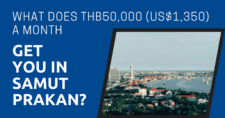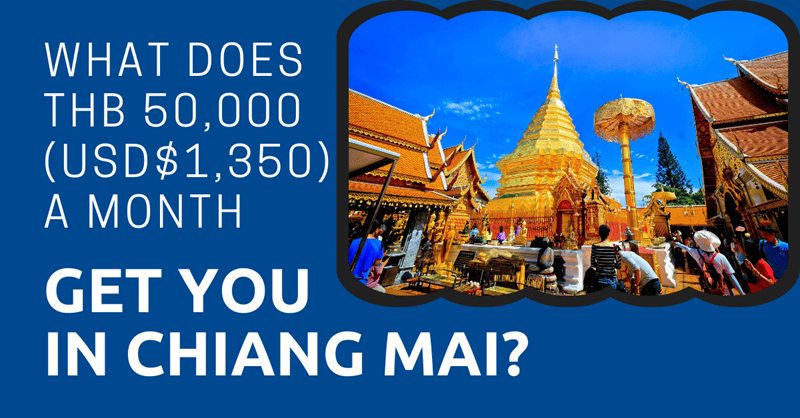
If you’re a long-term expat or planning an extended stay in Thailand, finding the right balance between lifestyle preferences and quality of life is essential when choosing where to settle.
For those drawn to northern Thailand’s scenic mountain landscapes and welcoming culture, Chiang Mai stands out with its unique mix of nature, tradition, and modern conveniences.
Choosing a place to live goes beyond personal taste- it’s about understanding how much value your budget can deliver. In this article, we’ll break down what living on a monthly budget of THB 50,000 in Chiang Mai looks like and what you can expect to afford.
"*" indicates required fields
Disclaimer: This article may include links to products or services offered by ExpatDen’s partners, which give us commissions when you click on them. Although this may influence how they appear in the text, we only recommend solutions that we would use in your situation. Read more in our Advertising Disclosure.
Contents
- About Chiang Mai
- Quality of Life
- Health Care
- Weather in Chiang Mai
- Air Quality
- Cost of Living
- Rent
- Utilities
- Food
- Transportation
- Community and Social Life
- Nightlife
- National Park
- Job Opportunities for Expats in Chiang Mai
- Family Life and Education
- Popular Neighborhoods
- Lifestyle with a THB 50,000 Monthly Budget in Chiang Mai
- Chiang Mai vs. Other Popular Cities
- Now, on To You
About Chiang Mai
Chiang Mai is the largest and one of the most popular cities in northern Thailand.
The city is also rich in cultural heritage, with many temples, traditional wooden houses, and a preserved old town featuring remnants of the old city walls and a moat encircling the town.
In addition to being a digital nomad hub, Chiang Mai is a popular choice for expats from all walks of life, from those raising families to retirees seeking a slower-paced lifestyle.
Quality of Life
Chiang Mai strikes the perfect balance between vibrant city living and the slow-paced charm of a small town.
Modern amenities like upscale shopping malls, premium grocery stores, and state-of-the-art entertainment venues are at your fingertips.
Yet, escaping to the tranquility of nature is effortless. With a short drive, you can immerse yourself in serene national parks, breathtaking waterfalls, and rejuvenating hot springs.
Health Care
As the largest city in northern Thailand, Chiang Mai offers easy access to high-quality healthcare services. There are private and public hospitals, pharmacies, dental care, and other services that facilitate general health and well-being throughout the city.
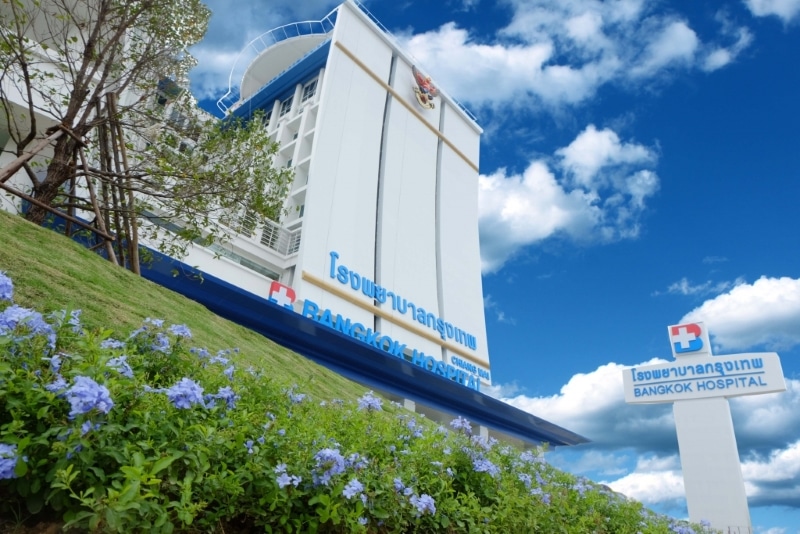
Hospitals
Chiang Mai provides a range of reputable hospitals and clinics, ensuring access to quality healthcare for all needs.
There are options to suit different budgets and preferences, from state-of-the-art private hospitals to more affordable public facilities.
Bangkok Hospital Chiang Mai
Part of the renowned Bangkok Hospital Group, Bangkok Hospital Chiang Mai is known for delivering high-quality healthcare.
Pros:
- High Standards: As part of the Bangkok Hospital brand, this facility is recognized for its consistent quality and professionalism in medical care.
- Specialized Care: Bangkok Hospital Chiang Mai excels in advanced medical services. This focus on specialized services makes it a top choice for those needing expert medical attention.
- Comfort: The hospital prioritizes patient comfort, featuring modern and well-designed facilities. From spacious private rooms and relaxing waiting areas to easy-to-navigate layouts, every detail aims to create a stress-free experience.
Cons:
- High Costs: Bangkok Hospital Chiang Mai is among the most expensive healthcare options in the city. Unless you have a good health insurance plan, it might be a better idea to visit other hospitals.
- Accessibility: While the quality of care is exceptional, it might be more than what’s needed for routine check-ups or minor health issues, making it less practical for everyday medical needs.
Chiang Mai Ram Hospital
Chiang Mai Ram Hospital is one of the most renowned private hospitals in the area. Known for its international healthcare standards and extensive English-speaking support, it’s a top choice for foreigners seeking reliable medical care.
Pros:
- Comprehensive Services: The hospital offers a wide range of medical specialties, covering everything from routine check-ups to advanced diagnostics and specialized treatments.
- Patient Comfort: The hospital prioritizes patient comfort with modern facilities and spacious private rooms. Amenities include comfortable furnishings and private bathrooms, ensuring a pleasant stay during treatment.
- Expat-Friendly: A favorite among expats, Chiang Mai Ram Hospital is well-versed in catering to international patients. The staff speaks fluent English.
Cons:
- Cost: Chiang Mai Ram Hospital is among the more expensive options in the city.
- Crowded: The hospital can get quite busy, leading to longer wait times for appointments and services, especially during peak hours.
Lanna Hospital
Lanna Hospital is an excellent option if you’re seeking affordability without compromising quality. It’s well-regarded by both locals and expats for providing reliable care at a more reasonable price point.
Pros:
- Cost-Effective: Lanna Hospital offers quality medical care without the high costs typically associated with top-tier private hospitals.
- Range of Services: The hospital covers a broad spectrum of medical needs, from routine check-ups to more specialized treatments.
- Less Crowded: Lanna Hospital is generally less busy than higher-end facilities, leading to shorter wait times for appointments and treatments.
Cons:
- Facilities: They aren’t as modern or luxurious as those at Chiang Mai Ram or Bangkok Hospital. You’ll still be comfortable and well cared for, just without the extra frills.
- Language Barriers: You may encounter fewer English-speaking staff compared to other private hospitals, making communication tricky for non-Thai speakers, especially when discussing medical details.
Nakornping Hospital
As a government-run facility, Nakornping Hospital is a solid choice for expats seeking reliable and affordable care. While it may lack the luxury and specialized treatments of private hospitals, it is well-regarded for its dependable and compassionate care.
Pros:
- Affordability: Nakornping Hospital is the go-to for budget-friendly healthcare in Chiang Mai. As a government facility, it keeps costs low, making it accessible even without insurance or if you’re on a tight budget.
- Comprehensive Care: The hospital offers a broad range of medical services, including emergency care. While it may not have the same range of specialized treatments as private facilities, Nakornping effectively handles all basic healthcare needs.
Cons:
- Overcrowding: Nakornping Hospital is often busy, leading to longer wait times for appointments and treatments. This overcrowding may impact the level of personal attention and lead to a less relaxed experience.
- Facilities: The facilities at Nakornping Hospital are basic but functional and clean. However, they don’t offer the same level of comfort or privacy as private hospitals.
- Language Barriers: The hospital has fewer English-speaking staff, which can be challenging for expats who don’t speak Thai.
Pharmacies
You can find pharmacies throughout Chiang Mai.
Unlike some tourist destinations tend to inflate medication costs, Chiang Mai pharmacies usually maintain fair and standard pricing.
Dental Clinics
The city’s lower cost of living extends to dental care, where you’ll find excellent services at competitive rates. Whether it’s routine check-ups or more complex procedures like crowns or implants,
Read more: A Guide to Finding the Best Dentist in Chiang Mai
Weather in Chiang Mai
Chiang Mai experiences three distinct seasons:
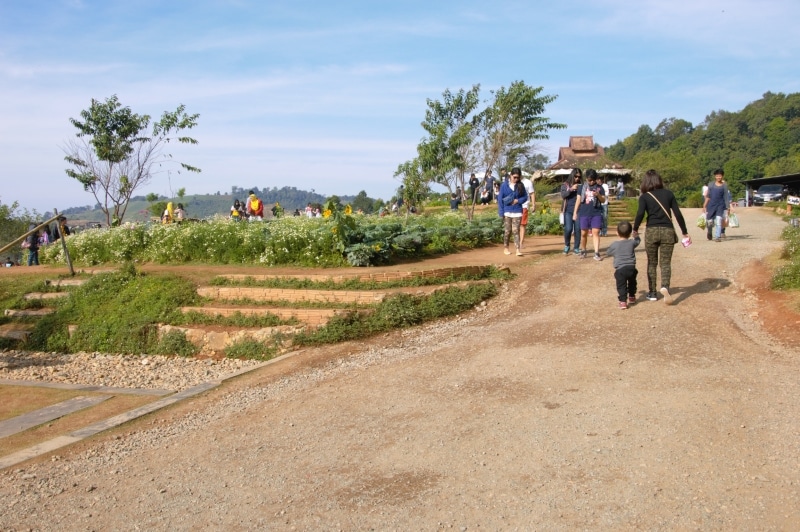
Cool Season (November to February)
- Average Temperature: 15°C to 28°C (59°F to 82°F)
- What to Expect: This is Chiang Mai’s most enjoyable season. Days are comfortably warm, while nights are refreshingly cool—perfect for outdoor activities and exploring the city. Bring a light jacket, as temperatures can drop in the evenings.
Hot Season (March to June)
- Average Temperature: 25°C to 37°C (77°F to 99°F)
- What to Expect: Afternoon temperatures often soar above 37°C (95°F), so staying hydrated and wearing lightweight, breathable clothing is essential. While the mornings and evenings are slightly cooler, planning activities around the intense midday sun is advisable.
Rainy Season (July to October)
- Average Temperature: 23°C to 32°C (73°F to 90°F)
- What to Expect: The rainy season in Chiang Mai brings frequent downpours and high humidity, with heavy showers often hitting throughout the day and night.
Flooding is a major concern, especially in low-lying areas and streets with poor drainage. Flash floods can quickly make driving hazardous, render certain roads impassable, and create safety risks for pedestrians.
Although the rain can be unpredictable, the vibrant, rejuvenated landscapes make this time of year a rewarding experience for those who appreciate Chiang Mai’s natural beauty.
Air Quality
Chiang Mai’s “Burning Season,” which typically runs from January to April, is notorious for severe air pollution caused by agricultural burning in the region. During this time, air quality often worsens significantly.
The Air Quality Index (AQI) frequently reaches “Unhealthy” or even “Very Unhealthy” levels, with average AQI values exceeding 200.
This leads to visibility issues and health concerns, especially for those with respiratory and other health conditions.
Many people opt to stay indoors, use air purifiers, and wear masks to minimize the effects of the poor air quality during this period.
Cost of Living
The cost of living in Chiang Mai is quite low. It is generally around 20% – 30% less expensive than other popular expat cities like Bangkok, Chon Buri, and Phuket.
Everyday expenses like dining out, groceries, and accommodation are more affordable.
On the other hand, the cost of healthcare and utilities are the similarly the same.
Many digital nomads spend around THB27,000 (US$800) to live in Chiang Mai. There are also those who live with a lower budget than this.
Rent
When settling in Chiang Mai, you’ll find a range of rental options catering to different budgets and lifestyle preferences.
From affordable studios to more spacious and upscale condos, the city offers something for everyone.
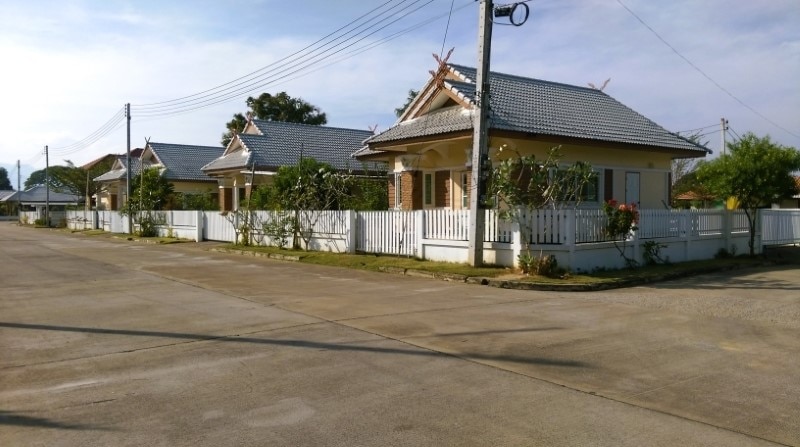
Here are some popular rental options, listed from the most budget-friendly to the more upscale choices:
The Orchid Boutique Condo (Hang Dong)
Rent: THB 8,500 – 10,000/month.
This 46 sqm one-bedroom condo offers a garden view, balcony, and basic amenities.
Rent: THB 11,000/month
This modern, resort-style condo features a 30 sqm one-bedroom unit with city and mountain views, a washing machine, and a balcony.
D Vieng Santitham (Chang Phueak) –
Rent: THB 14,000 – 16,500/month
This one-bedroom, 40 sqm condo is located in a peaceful area, offering shared amenities.
Rent: THB 18,000/month
This 58 sqm one-bedroom condo offers modern amenities like a balcony, bathtub, and proximity to the city center and the airport.
Rent: THB 20,000/month
Situated in the vibrant Nimman area, this 50 sqm one-bedroom unit offers premium amenities like a pool, gym, and 24-hour security. It’s perfect for those who want to be close to restaurants, cafes, and shopping malls.
Rent: THB 25,000/month
Located near the Night Bazaar, this 50 sqm one-bedroom condo is part of a high-rise with luxurious amenities, including a rooftop pool, sauna, and fitness center.
Rent: THB 30,000/month
For those looking for more space, this fully-furnished two-bedroom condo (65 sqm) offers a pet-friendly environment, bathtub, city views, and proximity to the airport.
In addition to a condo, you can find a house for rent in Chiang Mai. It’s a popular option among retirees since you got a pretty good house in an affordable price.
For example, you can rent a 2-3 bedroom house in Hang Dong for just THB15,000 a month.
If you are on a budget, there are many local apartments throughout the city that can cost less than THB5,000 a month.
Utilities
Throughout Thailand, utilities are budget-friendly, especially compared to Western countries. Water bills are typically meager, often amounting to just a few hundred baht per month, which is hardly noticeable.
However, electricity costs can quickly add up, largely depending on air-conditioning usage.
If you run your AC frequently—common during the hot season—monthly electricity bills usually range from THB 2,500 to THB 3,000.
The costs can be even higher for those who keep the AC running throughout the day or in larger homes.
Other expenses like internet and garbage collection are also inexpensive, adding only a small amount to your overall monthly budget.
Food
Chiang Mai is a haven for food lovers, offering everything from mouth-watering street food and authentic Thai restaurants to a wide range of international cuisine.
As the cultural hub of northern Thailand, the city is famous for its unique regional dishes, such as khao soi (curry noodle soup) and sai ua (northern Thai sausage), which are must-tries for anyone living here.
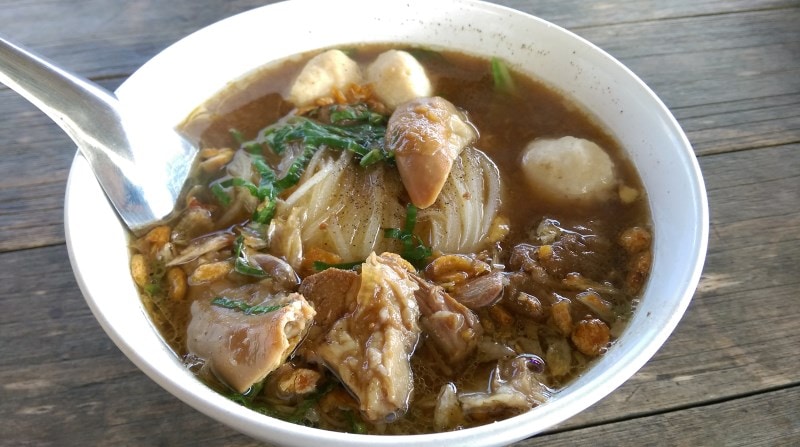
Compared to other expat hotspots like Phuket, food prices in Chiang Mai are notably lower, making it an affordable destination for dining out.
Street food and small local eateries are abundant, with delicious Thai dishes available for as little as THB 50. On average, meals range between THB 50 to THB 80.
If you shop at a local market, it’s possible to find food for even less than THB50 a meal.
Most vendors and local restaurants provide free drinking water, but if you prefer something more refreshing, expect to pay an additional THB 15 to THB 20 for other beverages, such as sodas.
In addition to a local food, thanks to Chiang Mai’s diverse expat community, you’ll find no shortage of high-quality international dining options. However, be prepared to pay more—meals at popular international restaurants range from THB 200 to THB 500.
While these prices are higher than local options, the quality and taste often make it worth the splurge.
Transportation
When it comes to getting around Chiang Mai, you’ll find plenty of convenient options. Tuk-tuks, songthaews (red trucks), and ride-sharing apps are widely available within the city.
Ride-Sharing Apps (Grab)
Grab is popular for its convenience and fixed prices. It’s often cheaper than tuk-tuks, with rates starting at THB 80 for a car ride or THB 50-60 for a GrabBike. Grab also offers the option to book songthaews, making it a versatile choice.
Songthaews (Red Trucks)
Songthaews are the most common and budget-friendly option. For trips within the city, expect to pay around THB 20-40 per person, though prices can rise in the evening or for longer distances. They’re shared rides, so they may take detours to drop off other passengers.
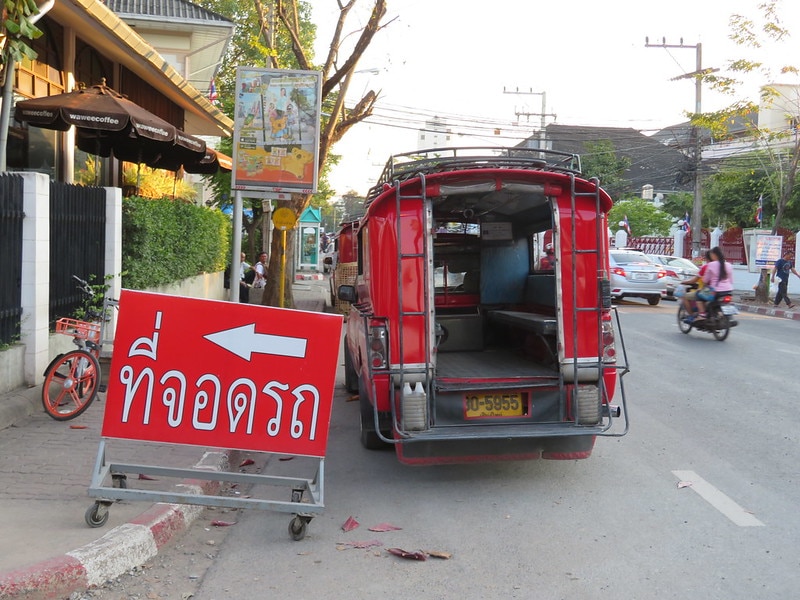
Tuk-Tuks
Tuk-tuks are a classic choice, perfect for short trips around town. Prices typically range from THB 60 to THB 100 for short distances, with longer rides going up to THB 150-200. While they’re fast and can navigate narrow streets, be prepared for higher costs, especially if you don’t haggle.
Motorbikes
For long-term expats, renting or buying a motorbike is a cost-effective option. Monthly rental rates range from THB 2,500 to THB 5,000, depending on the model and condition. If you’re buying, used motorbikes like the Honda Click or Honda Wave typically cost between THB 25,000 and THB 35,000. Just remember that owning a motorbike involves additional expenses like fuel (around THB 35-40 per liter), maintenance, and insurance.
The right choice depends on your daily commute and budget, so consider how often you plan to get around.
If your travel is frequent and varied, investing in a motorbike might save you money in the long run.
However, if you only need to get around occasionally, public transport like Songthaews or ride-sharing platforms can be more practical and budget-friendly.
Community and Social Life
Chiang Mai is home to a diverse and welcoming community, making it easy to meet new people and build connections. The city attracts a broad mix of locals, expats, and digital nomads.
The city is filled with groups and activities catering to all kinds of interests—from language exchanges and cooking classes to meditation retreats and tech meetups.
There is no shortage of social clubs, networking events, and co-working spaces where you can engage, collaborate, or simply hang out.
Nightlife
Chiang Mai’s nightlife is as diverse as its community, offering everything from casual hangouts to lively clubs. Whether you’re into live music, exploring night markets, or simply looking for a spot to relax with a drink, there’s always something happening.
Live Music and Bars
- North Gate Jazz Co-Op offers nightly jazz sessions.
- Zoe in Yellow is a lively spot where you can mingle with both locals and expats.
Roof Top Bars
- The Sky Bar and Rise Rooftop Bar at Akyra Manor offer stunning city and mountain views, making them perfect for sunset drinks.
- HONG’s Sky Bar at the InterContinental pairs panoramic vistas with sophisticated cocktails.
Night Clubs
- Warm Up Cafe in Nimman is a staple, offering everything from live bands to DJ sets
- Infinity Club features international DJs.
Night Markets and Walking Streets
- Sunday Walking Street is a must-visit, filled with street food, crafts, and live performances.
- Saturday Night Market on Wualai Road offers a similar vibe but with fewer crowds, perfect for soaking in the local culture.
Cultural Spots and Social Hubs
- Thapae East offers a mix of live music, art, and cultural events.
- The Good View combines good food, live music, and a scenic setting.
- Yellow co-working space is great for networking and connecting with like-minded people.
National Park
Chiang Mai is a great place to live for nature lovers. There are just so many natural parks available.
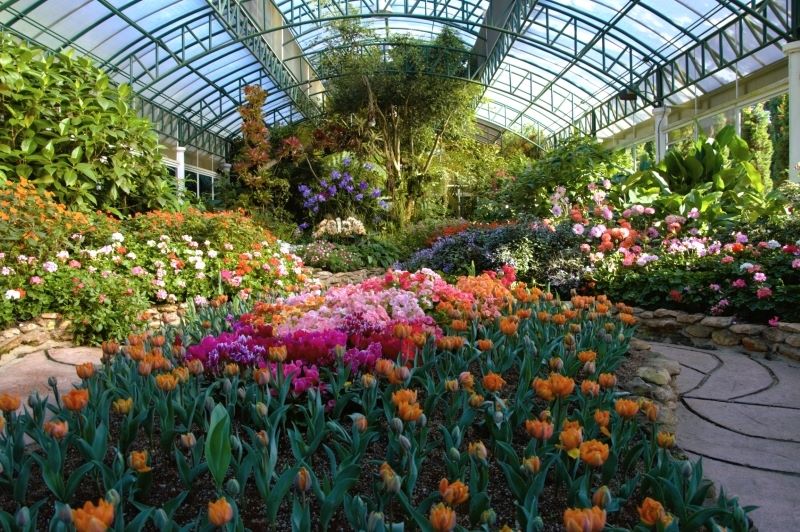
Here are some must-visit natural attractions:
- Huay Kaew Waterfall: 10 kilometers (6 miles) from the city, this waterfall offers a peaceful nature retreat that’s easy to reach. With only a 20 to 30-minute drive, it’s an ideal spot for a quick and refreshing escape from the hustle and bustle of city life.
- Doi Suthep-Pui National Park: 15 kilometers (9 miles) from Chiang Mai; this park is home to the iconic Wat Phra That Doi Suthep temple and the picturesque Bhubing Palace.
- Mae Sa Waterfall: 30 kilometers (19 miles) away, this waterfall features ten cascading tiers, perfect for a day trip.
- San Kamphaeng Hot Springs: Just an hour’s drive away, these mineral-rich hot springs offer a relaxing soak and a unique experience of boiling eggs in naturally heated water.
- Bua Tong Sticky Waterfall: 60 kilometers (37 miles) away, this unique waterfall lets you walk up the cascades thanks to its grippy limestone rocks.
- Mae Taeng River: 80 kilometers (50 miles) from Chiang Mai, this river is a haven for adventure seekers, offering thrilling white-water rafting experiences.
- Doi Inthanon National Park: Known as the “Roof of Thailand,” this park is 90 kilometers (56 miles) from the city and home to Thailand’s highest peak. It features stunning twin pagodas, breathtaking waterfalls, and captivating natural beauty.
- Mae Kampong Village: Nestled in lush forests and surrounded by tea plantations, this village is 50 kilometers (31 miles) from the city. It’s a perfect spot for eco-tourism, offering hiking trails and charming homestays for an immersive experience in nature.
- Pha Chor Canyon: 90 kilometers (56 miles) away, Mae Wang National Park is renowned for its stunning rock formations.
- Ob Luang National Park: Located 100 kilometers (62 miles) from Chiang Mai, this park is known for its dramatic gorges, ancient cliff paintings, and scenic hiking trails, offering a blend of natural beauty and history.
Job Opportunities for Expats in Chiang Mai
Chiang Mai’s growing expat community has led to a steady demand for foreign talent, with job opportunities primarily focused on specific sectors. Although the job market is somewhat niche, expats can find roles that align with their skills and the city’s laid-back lifestyle.
- Teaching: Teaching English remains one of the most common jobs for expats, with positions available in international schools, language centers, and universities. Certifications like TEFL/TESOL and a degree are typically required.
- Entrepreneurship: Many expats start small businesses, such as cafes, wellness centers, or creative agencies.
- Tourism and Hospitality: Given Chiang Mai’s strong tourism sector, expats can find roles in hospitality management, tour companies, or guesthouse operations. Some opportunities also exist in customer service roles that cater to international clients.
Family Life and Education
Chiang Mai is a great place for families, offering a balance of modern amenities, cultural experiences, and vibrant nature. Whether you have young kids or teens, the city’s welcoming vibe and strong community make it easy to settle in and feel at home.
The city is home to several well-regarded international schools:
Chiang Mai International School (CMIS)
Known for its American-style curriculum, CMIS offers a strong academic foundation and a range of extracurricular activities.
Tuition fees:
- Preschool (Age 3-4) THB312,900
- Elementary (Grades K-5): THB390,900
- Middle School (Grades 6-8): THB424,300
- High School (Grades 9-12): THB531,300
Prem Tinsulanonda International School (Prem)
Offering the full International Baccalaureate (IB) program, Prem has a spacious, eco-friendly campus and excellent facilities.
Lanna International School Thailand (LIST)
LIST follows a British curriculum and is known for its supportive learning environment and academic rigor

Nakornpayap International School (NIS)
NIS offers an American curriculum that emphasizes diversity and holistic education, creating an inclusive student environment.
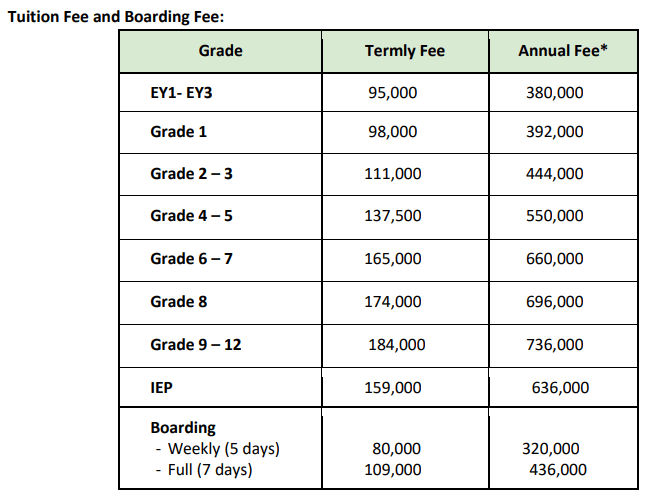

Panyaden International School
This school blends the International Primary Curriculum (IPC) with Buddhist principles and a strong focus on mindfulness and sustainability.
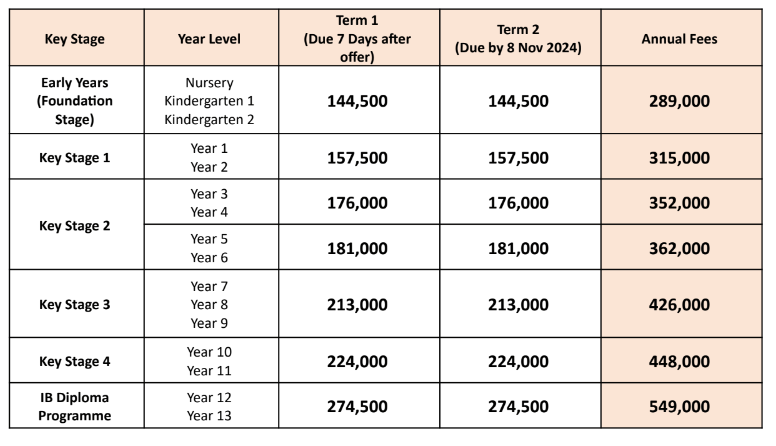
When choosing a school, it’s important to consider key factors like the curriculum, extracurricular options, and the learning environment that aligns with your child’s needs.
Chiang Mai has several family-friendly activities. Popular options include:
- Chiang Mai Zoo: Always a hit with kids, featuring various animal exhibits and an aquarium.
- Royal Park Rajapruek: A beautiful botanical garden perfect for family outings and picnics.
- Hidden Village Chiang Mai: A dinosaur-themed park offering fun and adventure for children of all ages.
On top of that, many cafes and restaurants in the city are designed with families in mind, offering play areas and kid-friendly menus, making it easy to enjoy a meal out together.
Popular Neighborhoods
Each neighborhood offers a unique experience:
Nimmanhaemin (Nimman)
Commonly known as “Nimman,” Nimmanhaemin is the trendiest spot in Chiang Mai, attracting digital nomads, young professionals, and creatives.
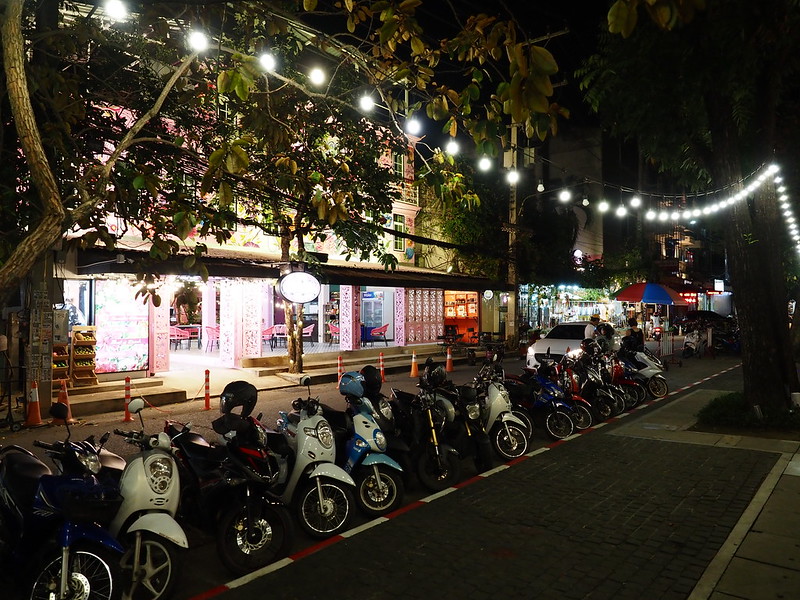
The area thrives with a lively mix of cafes, boutique shops, co-working spaces, and international restaurants. Nimman’s dynamic atmosphere and energetic nightlife appeal to those seeking a cosmopolitan lifestyle while still enjoying the city’s relaxed charm.
The neighborhood also features modern condos and stylish apartments, making it a convenient and attractive option for city living.
For those with children, although there aren’t any schools located in the district, Chiang Mai International School is in close proximity, only about a 10-15 minute drive away.
Hang Dong
Located south of the city, Hang Dong is a favored choice for families and those seeking a suburban lifestyle with more space and tranquility.
Known for its spacious homes and green landscapes, the area has several reputable international schools, such as Lanna International School.
Hang Dong offers a range of gated communities with amenities like swimming pools, fitness centers, and playgrounds, catering to families looking for a community-oriented environment.
The area also has international supermarkets, health clinics, and recreational facilities, providing convenience for daily living while maintaining a quieter, family-friendly atmosphere.
Old City
The Old Cityis Chiang Mai’s cultural hub, offering a rich blend of history, tradition, and modern conveniences.
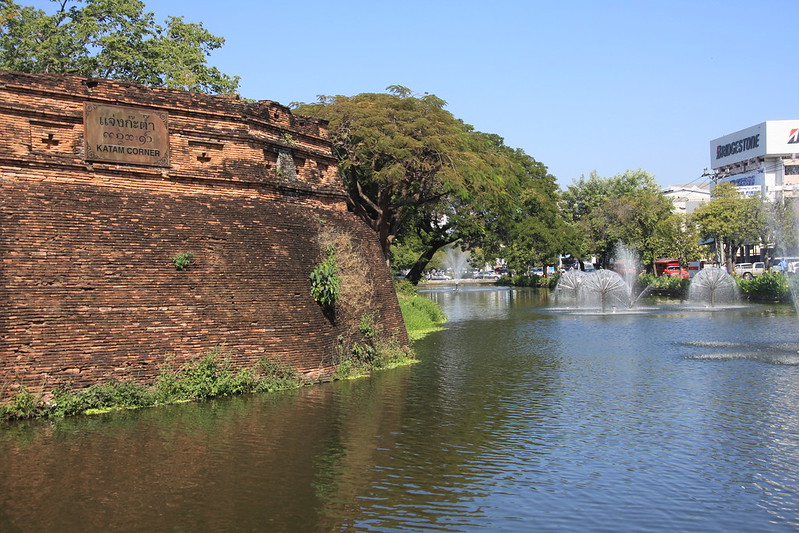
Surrounded by ancient walls and a moat, this area is home to temples, bustling markets, and cultural landmarks. It’s ideal for those wanting to immerse themselves in the city’s heritage while still having easy access to cafes, restaurants, and shops.
Despite its central location, the Old City maintains a slower pace of life, making it especially appealing to retirees, culture enthusiasts, and expats who appreciate its timeless charm.
Sacred Heart College Chiang Mai is Located near the southwest corner of the Old City, It offers both Thai and bilingual programs, making it an option for both local and expat families.
Lifestyle with a THB 50,000 Monthly Budget in Chiang Mai
A budget of THB 50,000 per month allows for a comfortable lifestyle in Chiang Mai with plenty of flexibility for both essentials and leisure.
With this budget, you can comfortably cover housing, utilities, transportation, groceries, and dining out and still have enough for entertainment, travel, and occasional splurges.
Here’s what you get:
- You can rent a spacious 58 sqm such as S Condo Chiang Mai (Suthep) in Suthep. It’s a fully furnished condo that comes with a kitchen, bath tub, swimming pool, and gym.
- The condo is also conveniently located in Nimmanhaemin, making it very easy to join regular social events there
- Or you can rent a 2 bedroom house in a convenient location around Chiang Mai
- You can eat out in a nice restaurant every day without having to worry much about the cost of food
- You can buy a used scooter to get around Chiang Mai easily
- You can have a mid-tier health insurance plan that covers hospitalization in full in most private hospitals in Chiang Mai
- You can actively join social networking events or parties
- You still have THB5,000 left on your travel budget
Here is a breakdown:
| Expense | Cost (THB) |
| Rent | 18,000 |
| Food | 13,000 |
| Transportation | 3,000 |
| Health | 3,500 |
| Utilities | 3,000 |
| Social Activities | 2,000 |
| Visa | 500 |
| Travel | 5,000 |
| Misc. | 2,000 |
| Total | 50,000 |
Please note that there are some fixed expenses are typically consistent, no matter where you live in Thailand:
- THB 3,000 per month covers basic utility costs, including moderate use of air conditioning, internet, and phone service.
- THB 500 per month for Thai visa-related matters
- THB 5,000 per month for travel
- THB 2,000 adequately covers routine personal expenses, such as laundry, haircuts, and other personal services.
Trade-off:
- While this budget gives you a pretty comfortable life in Chiang Mai, it isn’t enough for a family. If you want your kid to study in a private school, you should expect to have at least THB70,000 or twice the budget for international schools
- If you are retiree, you may need to find a cheaper place to rent, so that you have more budget on your cost of healthcare
- If you want to have a car, you need to eat out less and find a cheaper place to rent. At least, the cost of owning a car can be at least THB7,000/month excluding the cost of a car
Chiang Mai vs. Other Popular Cities
Chiang Mai vs. Chiang Rai
Chiang Rai offers a more tranquil atmosphere. It appeals to those seeking a laid-back, nature-focused lifestyle.
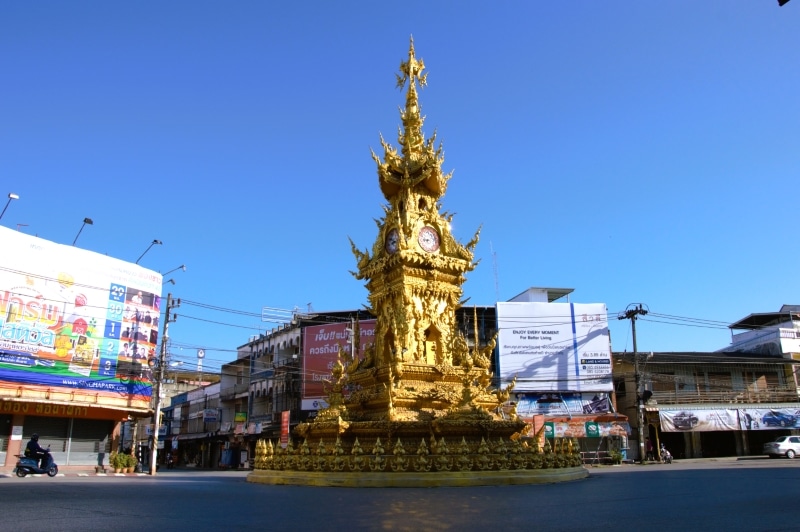
While Chiang Rai lacks the modern amenities and variety found in Chiang Mai, it compensates with a much lower cost of living, making it an attractive choice for budget-conscious expats.
Healthcare options are more limited, but Overbrook Hospital is a well-regarded private facility. For education, Chiang Rai International School (CRIS) and the International School of Chiang Rai (ISCR) are solid options, though fewer than those available in Chiang Mai.
Ultimately, your choice will depend on whether you prefer the dynamic energy of Chiang Mai or the peaceful, scenic setting of Chiang Rai.
Chiang Mai vs. Nan
Nan is another smaller town that offers a slower pace of life steeped in Lanna culture and tradition. Known for its historic temples, vibrant local festivals, and picturesque mountain landscapes, Nan is an excellent choice for nature enthusiasts who enjoy activities like hiking and cycling.
The cost of living is significantly lower than in Chiang Mai, making it appealing for those on a tighter budget.
The expat community in Nan is smaller and more close-knit, offering a more intimate and traditional Thai experience compared to the bustling lifestyle in Chiang Mai.
Nan stands out as an attractive alternative for those looking for a quiet retreat with a deep cultural connection.
Chiang Mai vs. Pai
Pai offers a stark contrast to Chiang Mai.
This small town, nestled in northern Thailand’s mountains, is known for its tranquil vibe and stunning natural surroundings. The cost of living in Pai is notably lower, with more budget-friendly accommodation, food, and entertainment options.
Pai’s social scene is relaxed and intimate, drawing a creative and bohemian crowd. Surrounded by waterfalls, hot springs, and lush landscapes, Pai is perfect for those seeking a slower pace of life focused on nature and peace.
However, the downside is its underdeveloped infrastructure, especially in healthcare and modern housing, making it less suitable for those needing more reliable services.
Now, on To You
A THB 50,000 budget in Chiang Mai can comfortably support a balanced lifestyle. The example budget presented here prioritizes housing, utilities, and food while still leaving room for entertainment and occasional indulgences. However, how you allocate your resources will depend on your unique preferences and needs.
Some may choose to invest more in comfortable accommodations or modern amenities. Others might prefer to focus their spending on experiences like travel, social activities, and dining out. Families, especially those with school-aged children, will need to account for education costs, which can significantly impact how the budget is distributed.
Ultimately, it’s about finding the right balance that aligns with your priorities and obligations.







